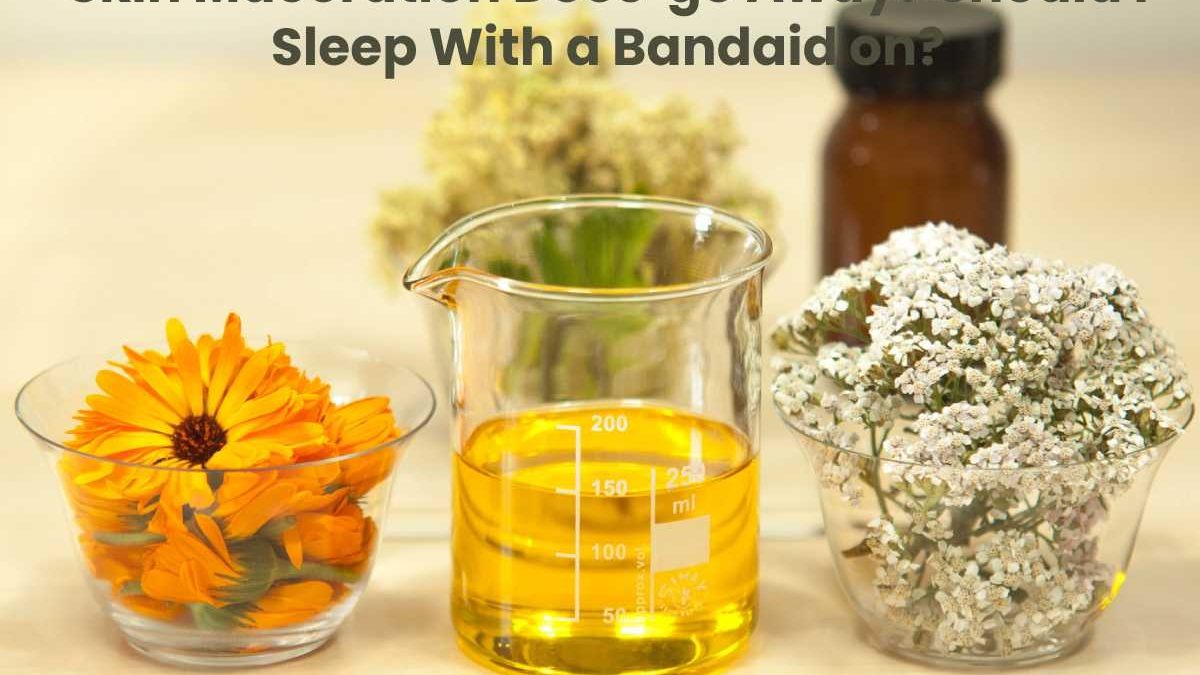Table of Contents
Introduction
Skin maceration happens when the skin is discovered to moisture for a prolonged period, which can seriously impact your fitness.
What Causes Skin Maceration?
Showering and custody ourselves clean using water is part of everyday time. But if your skin was subjected to moisture 24 hours a day, seven days a week? Excessive exposure to smoke can cause maceration, a severe problem for your skin.
Skin maceration happens when your skin is not working down by moisture on a cellular stage. Once this damage occurs, your skin becomes much more vulnerable to other troubles and complications.
Moisture-related skin damage (MASD) is an umbrella term for four types of skin evils caused by prolonged exposure to moisture:
- Incontinence-associated dermatitis (IAD)
- Intertriginous dermatitis (ITD)
- Peri wound skin damage
- Peristomal MASD
MASD often happens to people who sweat or come into contact with urine or faces for a long time due to incontinence. It can also happen to people with more extensive wounds that expel fluid or exudate when the damage isn’t kept spotless and dry.
Symptoms of Skin Maceration
luggage of skin maceration is more common in healthcare due to an ageing population. Populace who suffer from moisture-related skin damage canister practice the following symptoms:
- Pain
- Tenderness in the area
- A burning sensation
- Extremely itchy skin, also known as pruritus
People who suffer from skin maceration are too prone to mounting other complications around the area. Bacterial or fungal infections preserve an increase in macerated skin as these bacteria flourish in a dark, damp environment.
Painful force ulcers, also known as bedsores, occur on macerated skin. Dermatitis is a sad, irritating skin condition that can also cause or promoted through macerated skin.
Other factors that canister reason or worsen MASD are:
- Incontinence
- Poor hygiene
- extreme stress on the skin, such as friction or pressure
- The presence of yeast or fungus
- Humidity
- Chemical or biological skin irritants
Skin Maceration and Incontinence

Urinary and faucal incontinence can be a sensitive topic. It’s unknown how many people suffer from it because it can be difficult or embarrassing.
From what we know, urinary incontinence can affect about 19% of women aged 45 and older and 29% of women aged 80 and older. It’s not as well-studied in men, although we identify it affects 5-15% of men who live in exodus communities.
Incontinence is stoutly between skin maceration. Because incontinence can cause an atmosphere full of moisture, the skin can become macerated if left for an extended period.
When the skin is macerate, its protective barriers remain broken down. It leaves the door open for bacteria and other infections to take hold.
Urine and faces are not only irritants for the skin, but faces, especially canisters, contain bacteria that worsen cases of skin maceration. Incontinence-related maceration can extend in as little as four days.
It usually appears in the skin fold, inner thighs, and buttock area.
Treatment for Skin Maceration
Since skin maceration comes from constant moisture, keeping skin clean and dry can help speed up recovery.
When commerce with skin maceration, the first step is to clean the skin methodically to remove germs. In incontinence-related cases, consider a no-rinse, pH-balanced purifier.
Next, an ointment should be practical to the skin as a protective barrier. Keep skin clean and dry; if maceration is incontinence-related, change soiled clothes immediately.
Another way you can help skin maceration heal is by plummeting friction and force. That might mean moving yourself or your loved one every 1-2 hours to relieve stress in the area. You might consider supportive cushioning to help reduce tender regions.
Proper changing of bandage isn’t the only way to endorse healing. Getting good nutrition, especially protein, will give your body the necessary nutrients to repair itself. Drinking an optional amount of water will also help speed healing.
You’ll need the proper flow of the blood to heal fully. Avoid smoking tobacco. Smoking hinders your blood flow and makes the healing.
What Causes Skin Maceration?
Showering and keeping ourselves fresh using water is part of daily life. Although what if your skin was subject to wetness 24 hours a day, seven days a week? Extreme exposure to smoke can cause maceration, a severe problem to your skin.
Skin maceration happens when your skin breaks down by moisture on a cellular level. Once this damage occurs, your skin is greatly more vulnerable to other problems and complications.
Moisture-associated skin hurt is an umbrella term for four types of skin troubles caused by prolonged contact with moisture:
- Incontinence-associated dermatitis
- Intertriginous dermatitis
- Periwound skin damage
- Peristomal MASD
MASD often happens to people who sweat significantly or come into contact with urine or faces for a long time due to incontinence. It can also happen to people with more significant wounds that expel fluid or exudate when the injury isn’t kept clean and dry.
Conclusion
Since Skin Macerations comes from constant dampness, keeping skin clean and dry can help speed up recovery.
When commerce with skin macerations, the first step is to clean the skin methodically to remove bacteria. In incontinence-related cases, think of using a no-rinse, pH-balanced cleanser.
Next, an ointment should apply to the skin as a protective barrier. Keep skin clean and dry; if maceration is incontinence-related, change soiled clothes immediately.

